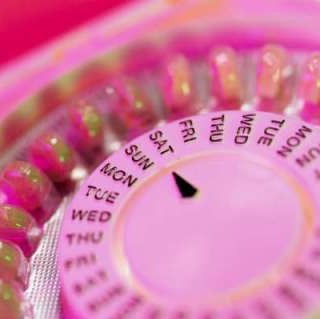-
Advocacy Theme
-
Tags
- Abortion
- Adoption
- Caregiving
- CEDAW
- Disability
- Domestic Violence
- Domestic Workers
- Harassment
- Healthcare
- Housing
- International/Regional Work
- Maintenance
- Media
- Migrant Spouses
- Migrant Workers
- Muslim Law
- National budget
- Parental Leave
- Parenthood
- Polygamy
- Population
- Race and religion
- Sexual Violence
- Sexuality Education
- Single Parents
- Social Support
- Sterilisation
- Women's Charter
Don’t force parenthood by denying abortion
April 22nd, 2013 | Letters and op-eds, News, Sexual and Reproductive Health, Views
by Ranjana Raghunathan, Jolene Tan and Vivienne Wee
The impact of pregnancy and childbirth is immense – everyone has the right to decide on such matters for oneself. The denial of abortion and post-abortion services is tantamount to an act of violence, and has been criticised by the UN Special Rapporteur on Torture, among others.
We are disturbed that the recent debate on abortion access implies that people may be forced to become parents against their will. In a recent commentary (Today 2 April 2013), Tan Seow Hon moralises that with less abortion access “some may have to learn the hard way but it is probable that many would organise their sexual relationships differently”. This suggests, without evidence, that many who seek abortions have deliberately chosen not to use contraception. This is deeply implausible. Abortion is more invasive and risky than preventative contraception – why would someone with adequate information choose it over condoms, a pill or an IUD?
 In reality, the failure lies in Singapore’s sex education. A judgmental and biased focus on abstinence hurts people’s ability to make informed choices about contraception and reproductive health. When Ms Tan says people have to “learn the hard way”, is she implying that being forced into parenthood is a “lesson”? The heavy consequences faced by unwanted children and unwilling parents cannot be overlooked in a bid to chastise people’s sexual and reproductive decisions. We should be talking about increasing awareness and access to contraception, not using restricted abortion access as a scare tactic.
In reality, the failure lies in Singapore’s sex education. A judgmental and biased focus on abstinence hurts people’s ability to make informed choices about contraception and reproductive health. When Ms Tan says people have to “learn the hard way”, is she implying that being forced into parenthood is a “lesson”? The heavy consequences faced by unwanted children and unwilling parents cannot be overlooked in a bid to chastise people’s sexual and reproductive decisions. We should be talking about increasing awareness and access to contraception, not using restricted abortion access as a scare tactic.
Ms Tan ignores the possibility of pregnancies resulting from rape, failed contraception or women’s lack of power to demand contraception during sex. She also dismisses the danger of backstreet abortions. A 2007 global study of abortion by the World Health Organisation (WHO) shows that regardless of whether the law is restrictive or liberal, most women decide to terminate an unplanned pregnancy, but where it is illegal, it is likely to be performed by poorly trained providers under unsafe conditions, and can be fatal for the woman. The WHO found that the best way to reduce abortion rates was not to make abortion illegal but to make contraception more accessible.
Ms Tan also dismisses the danger of backstreet abortions. A 2007 global study of abortion by the World Health Organisation (WHO) shows that regardless of whether the law is restrictive or liberal, most women decide to terminate an unplanned pregnancy. However, the legal status of abortion greatly affects the dangers involved: where abortion is legal, it will be provided in a safe manner; where it is illegal, it is likely to be performed by poorly trained providers under unsafe conditions, and can be fatal for the woman. The WHO found that the best way to reduce abortion rates was not to make abortion illegal but to make contraception more accessible.
 Ms Tan suggests that because abortion access was expanded decades ago to curb population explosion, it is no longer justified today. This implies that the state rightfully has control of our reproductive systems for demographic goals, such as population control or ‘nation-building’. This denies our autonomy over our own bodies. The impact of pregnancy and childbirth is immense – everyone has the right to decide on such matters for oneself. The denial of abortion and post-abortion services is tantamount to an act of violence, and has been criticised by the UN Special Rapporteur on Torture, among others.
Ms Tan suggests that because abortion access was expanded decades ago to curb population explosion, it is no longer justified today. This implies that the state rightfully has control of our reproductive systems for demographic goals, such as population control or ‘nation-building’. This denies our autonomy over our own bodies. The impact of pregnancy and childbirth is immense – everyone has the right to decide on such matters for oneself. The denial of abortion and post-abortion services is tantamount to an act of violence, and has been criticised by the UN Special Rapporteur on Torture, among others.
Ms Tan blames women for seeking abortions. Her ill-informed condemnation ignores the medical fact that there is extremely low foetal viability in the early stages of pregnancy, falsely projecting human identity on a blastocyst, embryo or foetus. This controlling rhetoric presents women with only two choices – to be coerced into motherhood against their wish or to accept the stigma of supposed ‘murder’.
 A similarly blinkered view is taken by Focus on the Family in its recent suggestion that parental consent should be required for those under 21 seeking abortions (Today 16 April 2013). This ignores the likelihood that girls under 21 may be at increased risk of family violence if their unwanted pregnancies were disclosed to their parents without their consent. Nor does it consider that some minors may be pregnant as a result of sexual abuse by a family member. Everyone is entitled to medical privacy and can choose to whom they wish to make disclosures.
A similarly blinkered view is taken by Focus on the Family in its recent suggestion that parental consent should be required for those under 21 seeking abortions (Today 16 April 2013). This ignores the likelihood that girls under 21 may be at increased risk of family violence if their unwanted pregnancies were disclosed to their parents without their consent. Nor does it consider that some minors may be pregnant as a result of sexual abuse by a family member. Everyone is entitled to medical privacy and can choose to whom they wish to make disclosures.
While there is an important need to teach contraception, support single mothers and liberalise adoption, these are not alternatives to abortion access.
Decisions to abort pregnancies are not made lightly. Individuals consider relevant factors such as physical and mental health, childcare responsibility, its disproportionate burden on women, the stresses and stigma of single parenthood, economic difficulties, and life stage choices. Despite recent improvements, child rearing is still largely women’s responsibility. Reproductive autonomy is particularly important for women, as childbirth has long-term consequences for them.
Ultimately, women themselves must be the ones to decide whether to abort a pregnancy or to bring it to term, based on full access to neutrally presented factual information. Access to legal abortion allows every woman the safe option of choosing what is best for her – parenthood, abortion or adoption.
Ranjana Raghunathan and Jolene Tan are volunteers at AWARE, Vivienne Wee is the Research and Advocacy Director at AWARE and Kokila Annamalai is the Communications Executive at AWARE. A shorter version of this article was first published in Today Online on 20 April 2013. Read the published version here.




One thought on “Don’t force parenthood by denying abortion”
Comments are closed.